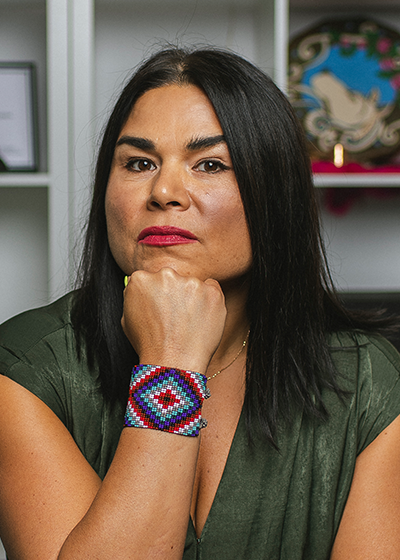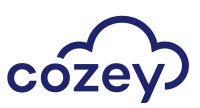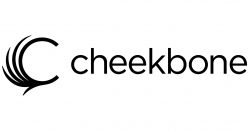CREATED FOR GOOGLE
Google's Big Impact on Canada's Small Businesses

Clockwise from top left: Cozey founder Frédéric Aubé, Cheekbone Beauty founder Jenn Harper, Overland Yukon founder Andrew Pettitt and AVA co-founders Valerie Song and Chase Ando
If a great idea is at the core of every great business, what does it take to turn something great into something extraordinary? For small businesses in Canada, adopting digital technologies has unlocked extraordinary potential in areas including growth, productivity and more. Google Canada commissioned independent consultancy Public First* to explore and quantify how its products helped workers, businesses, content creators and consumers in 2021. Public First estimates that in 2021, Google Search, Google Play, YouTube, Google Cloud and Google Advertising tools helped provide $37B of economic activity for Canadian businesses, nonprofits, publishers, creators and developers—equivalent to 1.5 per cent of Canada’s GDP. Google Canada’s 2021 Economic Impact Report reveals that the benefits of digital tools don’t end there. From the innovative tech startup on the brink of digital transformation to the online retailer laying roots in the market, small businesses are increasingly positioning Google as a trusted asset to the success of their brands.
“When the pandemic upended
all of our lives,
digital became essential."
“Before COVID-19, making the transition to digital was aspirational,” says Sabrina Geremia, vice president and country manager at Google Canada. “When the pandemic upended all of our lives, digital became essential. Now it’s foundational, helping Canadian businesses of all sizes build resilience and unlock value.” Google Canada’s 2021 Economic Impact Report reveals that the benefits of digital tools such as Google Search and Google Ads don’t end with economic activity. “One of the biggest opportunities our digital tools have presented is that businesses are now looking beyond our Canadian borders to find opportunities to grow their presence internationally and reach customers in new markets around the world,” she adds. According to research conducted by Public First, it is estimated that Google Search and Google Ads are supporting $1.7 billion in exports for the Canadian economy.
*Public First, an independent consultancy commissioned by Google Canada, surveyed more than 7,500 Canadian consumers and 2,000 senior decision makers and used traditional economic modelling to explore how Google products are helping Canadians.

Sabrina Geremia, vice president and country manager at Google Canada
When Frédéric Aubé launched his Montréal-based furniture company in the summer of 2020, he set his sights on revolutionizing the industry. Prioritizing comfort, simplicity and convenience, Cozey offers two unique modular sofas shipped in multiple boxes to fit through any door and make delivery a breeze. Its mission is to improve the furniture shopping experience for Canadians by providing world-class customer service and great value for its products. And as an online-only retailer, its digital foundation has been a big part in maintaining its high-quality customer experience.
“One of our biggest challenges as a brand was to earn the trust of new and potential customers,” says Félix Robitaille, director of marketing at Cozey. “Overcoming this challenge started with understanding who exactly our customers are.” With the help of Google Analytics, Robitaille and the team at Cozey have been able to verify the quality of traffic on the company website and really understand how customers are interactive with the brand online. In addition, the team has determined where its customers are coming from so that they can concentrate their efforts on specific demographics.

“Overcoming this challenge started with understanding who exactly our customers are.”
Driven by data, Cozey’s advertising and digital marketing strategy reaches an optimized audience of online shoppers—translating into greater sales and brand recognition. Alongside the Google reviews Cozey leverages online, the brand has built a trustworthy reputation in the market and scaled accordingly. “Since I’ve been with the company, I’ve seen our reach grow exponentially,” says Robitaille. “We’ve since expanded outside of Québec, into Ontario and even added a warehouse in Vancouver to better serve a growing customer base in western Canada.”
During the pandemic, the use of eCommerce grew tremendously—a perfect storm for a brand like Cozey to launch and utilize Google tools to make its online presence known. Up next, the brand plans to expand outside of the living room and into furniture for the entire home.

Cheekbone CEO Jenn Harper has never been one to settle for less. Her dream to launch an independent beauty brand was born out of her desire to be one of the greats. “Seeing other small brands reach global presence, I felt there’s no reason this couldn’t be possible for me,” she says. Inspired by the millions of Indigenous people making up five per cent of the global population, Cheekbone Beauty is a brand with a big market and even bigger cause—“to help Indigenous people on the planet see and feel their value in the world,” says Harper. “That’s always been at the centre of my work.”
Launching the brand out of her home in St. Catharines, Ont., Harper admits to initially having very little understanding of the digital space and eCommerce. “Once I learned that tools like Google Trends existed, everything changed,” she says. Identifying some of the top Google searches in the category of beauty determined what some of Cheekbone’s inaugural products would be and aided Harper in the development of her business’ online storefront. “Through the power of Search, Google was a master tool in helping us find the right people to connect with online.”

Born on the internet, Cheekbone Beauty was in many ways prepared for a pandemic economy. As customers caught up to the high speed of eCommerce, Harper utilized Google Trends to keep on track with search and product trends. “With 2020 came a huge boost in online activity, new customers and traffic on the website,” says Harper. “Our community grew by 354 per cent.”
Today, Cheekbone Beauty continues to get a lot of use out of its digital toolbelt—using tools to reach customers the moment they’re looking to discover a new product. The B Corp-certified brand has been able to stay connected to its core customers while also growing omnichannel—now available at Sephora Canada and launching next year at JC Penny stores in the United States.

Like many great business ideas, Overland Yukon was conceptualized over a beer. During a road trip in Costa Rica, where Andrew Pettitt and some friends rented a Land Rover Defender to get around, he wondered why such a travel experience wasn’t available in his home territory of the Yukon. In a land where the population of moose outnumbers that of people, there was surely a market of tourists eager to explore the vast landscape and wilderness of Canada’s northwest. But before launching the all-inclusive Jeep rental business in 2018, Pettitt needed to first test the market.
“That initial season was really an opportunity for us to determine who our potential clients were,” says Pettitt. By using Google Data Studio, he learned that Overland Yukon’s website traffic was highest among those in Europe and within a 34- to 40-year-old age demographic. “We missed the mark initially, but this information allowed us to restructure our pricing and marketing plan entirely,” says Pettitt.

“Our data-driven approach with Google services has been one of, if not the, most important component to the growth of our business.”

“Our data-driven approach with Google services has been one of, if not the, most important component to the growth of our business,” says Pettitt. He attests that many of the business decisions made at Overland Yukon are influenced by Google Data Studio’s trajectory predictions combined with a willingness to change and evolve in accordance with the insights provided. To enhance brand awareness, for example, the team began developing in-house content for its website, YouTube and social media accounts and investing in marketing dollars through paid Google Ads to boost activity. “It doesn’t go without saying that some of Google’s best products are free,” adds Pettitt. “We created a private map on Google Maps with resources for travellers that allows our customers visiting the Yukon to see what their trip might look like. In a way, our brand started as simply a rental car program, but we’ve built on that in ways that enhance the experience of travel and allow us to get a lot of user-generated content back for us to use as marketing material.”
Every month in 2021, Google helped drive over 235 million direct connections, including phone calls, requests for directions, messages, bookings and reviews for Canadian businesses—a benefit to Overland Yukon, as visitors from around the world are able to reach out, ask questions and book trips, all through a quick Google Search. Today, travellers from the United Kingdom, Germany, Australia and the United States make up some of Overland Yukon’s biggest customer demographics. And by tracking how
Prior to becoming business partners, AVA co-founders Valerie Song and Chase Ando shared a lot of things in common: a love for food, curiosity in plant science and a sentiment of living in an expensive city, which makes outdoor gardening a challenging feat. “We realized that there needed to be a solution for those living in urban areas with an interest in growing their own foods,” says Song. Ergo, AVA was born. Launched in 2017, the Vancouver-based company makes gardening accessible to all by way of hassle-free, ready-to-plant seedlings for hydroponic and soil-based gardens. Their plants are science-driven experiments to optimize quality and flavour while minimizing the impact on the planet.

To hit the ground running, Song and Ando adopted Google’s suite of tools early on. “At first, we used only the simple services like Gmail and live document- editing tools like Google Sheets and Docs,” says Song. “Today, our digital strategy is a much more robust SaaS structure, from communication tools to digital ad tools, software management tools and more.
AVA’s Google toolbelt has not only enabled the company’s digital transformation, but its transformation from being solely a hardware company to a plant-science company driven by Google Data Studio—where information on nutrient dosage, lighting and water cycles has provided Song and Ando with the ability to digest large amounts of information and determine how AVA can grow plants faster and tastier for its customers. “It feels as though we keep discovering new ways to optimize our work through technology,” says Song.

In 2021, AVA also participated in the Google for Startups Accelerator Program, a three-month program in which 12 promising Canadian start-ups receive mentorship and technical project support to help scale their business. They were guided through workshops, networking events and mentorship opportunities which ultimately have helped them to grow and scale their operations. By providing guidance on product design, founder development and customer acquisition strategies, the Accelerator Program seeks to help Canadian technology start-ups thrive on a national and global stage by equipping teams with the skills they need to grow.
“All of these tools worked in unison
with one another and revealed to us that
there is indeed a market
for the Harvest Club.”
Since completing the program, AVA has developed a new outlook toward its digital foundation—utilizing an ecosystem of tools. An example is a beta test that the company ran in anticipation of AVA’s Harvest Club Subscription launch—surveying potential customers in different areas to gauge interest in the subscription service. “We designed a survey through Google Forms and used Google Ads to reach our audience,” says Song. “The accelerator program taught us how to use these tools in unison with one another, providing us with very specific and valuable insights.” Through mentorship and workshops the team accessed through the Google for Startups Accelerator Program, AVA acquired the ability to learn more and better serve its customers with a suite of digital tools.
Small businesses are the backbone of the Canadian economy. From car rentals to restaurants to beauty products and all of the success stories untold, Google Canada’s impact is evident. As the digital market continues to cement itself as a global standard, it’s imperative that Canada’s future business owners are equipped with the digital tools and services they need to thrive. “We want to make it as easy as possible for Canadian businesses to access the digital tools and insights they need to grow online,” says Geremia. “That’s why services like our Google for Small Business resource hub are available at no cost, giving SMB owners recommendations and resources to help start or build their online presence and achieve their goals.” In addition, it’s about connecting with communities that need it most. “Knowing that underrepresented communities have been more impacted by the pandemic, we also want to ensure that we’re reaching those facing greater barriers to opportunity,” she adds. “With this in mind, we have formed new collaborations, like with NPower Canada to deliver Google Career Certificate courses, ComIT to re-skill Indigenous job seekers, and supporting Indigenous businesses through a partnership with the Canadian Council of Aboriginal Businesses.
Alongside Google’s products, Google for Startups Accelerator Programs and digital skills training, Google Canada’s investment in communities across the country by way of its suite of business tools and partnerships is a reflection not only of the potential but immense talent within our borders.
To learn more about Google’s economic impact, click here.


